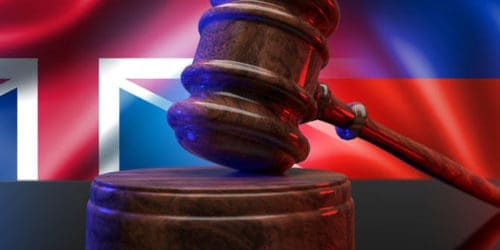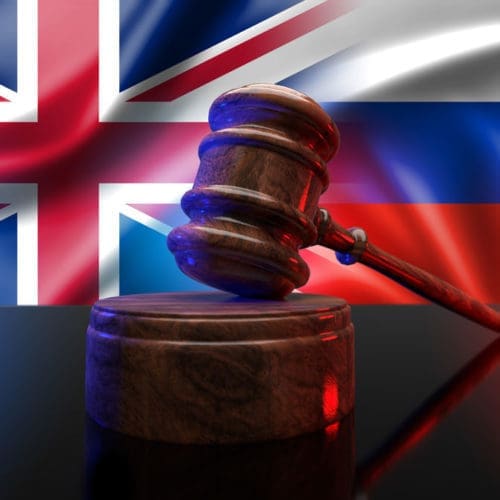Russia sanctions: Government has engineering and architectural services in its sights
October 2022Introduction
On 30 September 2022, the UK Government announced an additional package of sanctions against Russian aggression in Ukraine. Alongside an expansion of the list of designated persons, the Government also put forward prohibitions on the provision of architectural, engineering and IT consultancy services to Russia, as well as transactional legal services.
The move has been made specifically to counter the Kremlin’s attempted annexation of the occupied territories in the east and south of Ukraine. The Government’s announcement came the same day as President Putin signed decrees purporting to incorporate the provinces of Luhansk, Donetsk and Kherson and Zaporozhiye into the Russian Federation. The actions of the Russian Government have attracted widespread international condemnation.
Ban on architectural and engineering services
The UK will block Russia from accessing services sectors including IT consultancy, architecture, engineering, advertising, transactional legal advice and auditing. In July 2022, the Government had already banned Russia from receiving business and management consultancy services, accountancy services and public relations advice. Russia imports 77% of engineering and architectural services from the G7 and today’s measures are intended to debilitate the future growth of Russia’s key industries.
Speaking in response to the move, Director of the Institute of Civil Engineers, Nick Baveystock, made the following statement to members:
“We urge any UK employers offering engineering services in Russia to read the guidance from the Foreign Office and to take action sooner rather than later to minimise disruption.”
Similarly, RIBA President, Simon Allford said:
“Whilst many of our members have already taken proactive steps and suspended their work and projects in the country, all Members and Chartered Practices must now ensure they adhere to the new restrictions. Please note that this adherence will be a legal obligation and failure to comply will result in serious consequences, including being in breach of RIBA Codes.”
As Mr Allford observes, architects and engineers had already felt the effect of Russia-related sanctions; many had already abandoned projects with a Russia related dimension (for example because the project was physically located in Russia or the client was a Russian individual or project). However, not all have been able to exit so easily. A significant number of architects and engineers have found themselves mid-project without the ability to exit easily. For them, this ban will represent a serious headache.
Prohibition on IT Consultancy Services
IT consultancy services are amongst those services which Russia will no longer be able to import from British firms. The Government has noted that since the beginning of the invasion more than 170,000 IT specialists have left Russia, representing a critical skill shortage in an area of strategic importance. These additional measures are intended to exacerbate matters further and erode Russia’s ability to keep pace with technological progress in other parts of the world.
The scope of this prohibition will include services “designing IT systems and software applications”. HM Government had already banned exports to Russia of quantum computing exports and related computing services.
Ban on transactional legal services
The latest package of sanctions will also include prohibitions on the provision of transactional legal services to Russian businesses and entities. In its announcement, the Government notes that Russia “is highly dependent on Western countries for legal services with 85% of all legal services being imported from G7 countries”.
This element is controversial given that access to legal representation is seen as a fundamental right. The right to seek legal advice is particularly important for individuals charged with a criminal offence and is protected explicitly under Article 6 of the ECHR. It is perhaps for that reason that the Government has limited the ban to commercially related legal services. This still has the ability to impact upon Russian businesses significantly where, for example, they wish to conclude commercial contracts or acquire or dispose of assets.
Other measures
The Government has also prohibited the export of almost 700 specified types of goods from the UK to Russia. This brings the total value of sanctioned UK-Russia trade to around £19 billion.
Further individuals were added to the Government’s designated persons list. This included the Governor of the Russian Central Bank. The Russian banking sector has already been the target of previous sanctions measures. Russian banks such as Alfa Bank and Sberbank, for example, have been listed as designated persons. That has frustrated the ability of contractors and consultants to get paid either by the banks themselves or by clients who have accounts with them.
What should you do?
Businesses need to act quickly to assess whether they fall within the scope of these prohibitions. We would advise you to take the following steps:
- Consider your client list. Do you have Russian customers, and could the nature of the services you provide bring your organisation within the regulations?
- Look beyond your immediate contracting partner; who is the ultimate beneficiary of the services you provide? In the context of a construction project, this may be the client or owner of the site.
- Consider the range of services provided by your organisation. Would these fall within the prohibitions the Government has put in place?
- Refresh sanctions training. Make sure that the relevant staff are aware of all Russia related restrictions and act on them.
- Where the law would no longer permit the performance of customer contracts, review the terms of those contracts and identify your options to terminate or suspend performance.
- It is not clear from the Government’s announcement whether the intention is to allow service providers to be paid for services already carried out up to the date of the prohibition. If such payments are not to be allowed, consider the possibility of seeking a licence from the Office of Financial Sanctions Implementation (“OFSI”) in order to allow your organisation to be reimbursed.
If past is prologue, we can expect the Department of Business Energy & Industrial Strategy to lay a statutory instrument before Parliament with the specific wording of the prohibitions. It is important for businesses to look out for that document, which will elucidate the definitions (and therefore the scope) of what is considered to constitute engineering and architectural services. The regulations will also spell out when the prohibitions are considered to come into force.
The Government may also lay down a General Licence to allow businesses to wind down contracts which are already being performed. This amounts to a grace period to allow businesses to exit arrangements in an orderly fashion. Again, businesses should study these carefully. If the General Licence will not precisely cover all aspects of the transaction, an application for a specific licence should be considered.
Clearly though, businesses should not delay in taking steps to comply with the new rules. As we outlined in our recent seminar, failing to observe sanctions rules can carry serious reputational, financial and criminal penalties.
Download PDF







